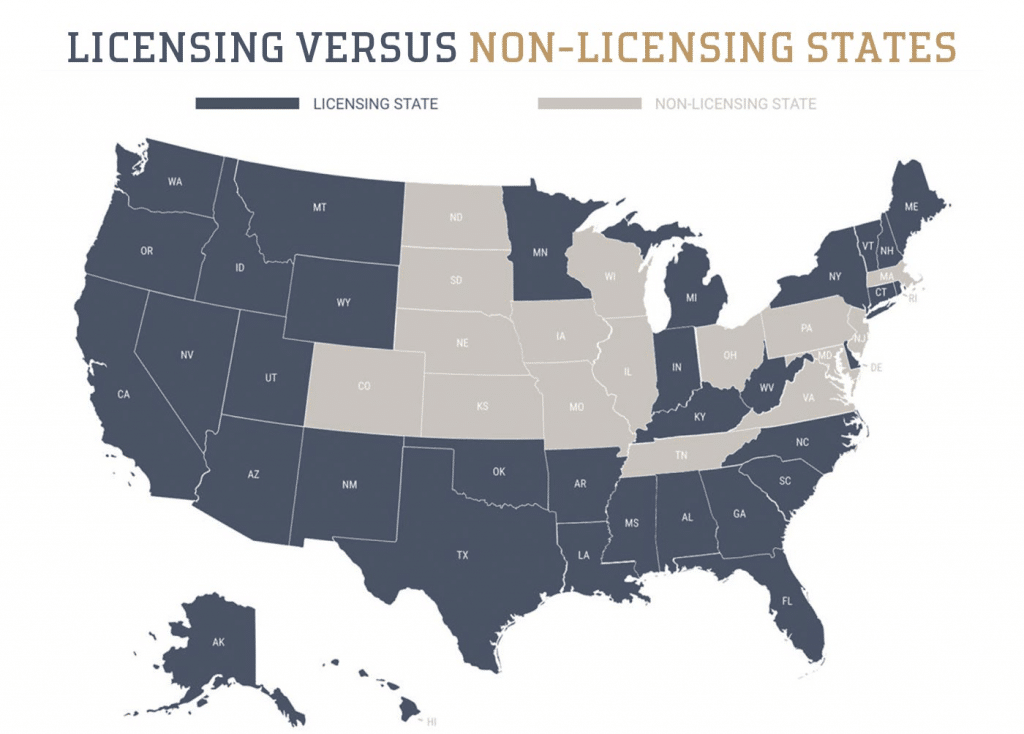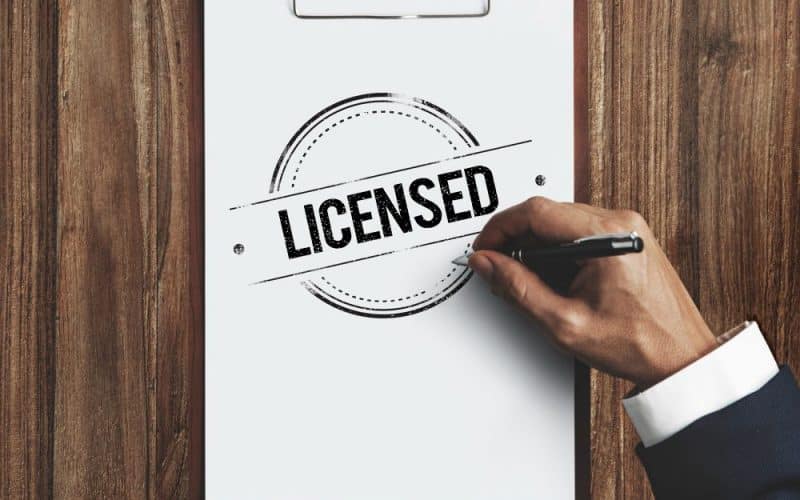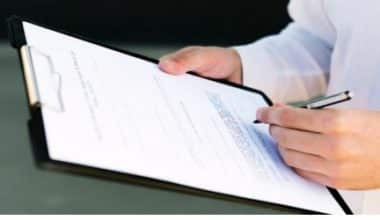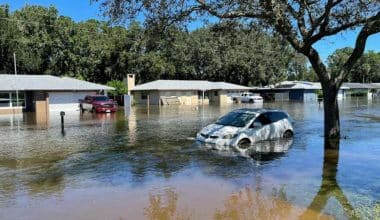To become an insurance claims adjuster and get a license, you need to meet certain requirements, which may vary based on the state and the type of work you want to do. Generally, you need a high school diploma or GED and complete insurance adjuster training.
You also need to pass the State Insurance Adjuster’s Licensing Exam.
Who is an insurance claims adjuster?
The adjuster works on behalf of an insurance carrier to investigate, evaluate, adjust, and negotiate the value of your claim for payment under an insurance policy written by the firm represented. This individual will determine if you have a valid claim under the insurance contract and, if so, how much money you are entitled to.
Some insurance companies have multiple titles for insurance adjusters. The insurance you are dealing with, for example, may employ the following job titles: claim examiners, claim agents, claim representatives, investigators, or claim auditors.
However, in general, these distinct titles play the same roles in legal claims.
Desk adjusters vs. field adjusters
Desk adjusters, also known as inside adjusters, work in offices. They handle claims using their computers by information, including images, sent to them by policyholders. Field adjusters, meanwhile, go to the center of the action. They travel to where the damage occurred, interview people there, take pictures, and assess the damage firsthand.
Catastrophe adjusters vs. daily claims adjusters
Catastrophe adjusters, also called CAT adjusters, are tasked to handle large-scale calamities and are often deployed to disaster zones to work on the claims. Given that these professionals work extremely long hours, with each assignment lasting weeks to even months, and face brutal conditions, they are also among the highest-paid adjusters.
Daily claims adjusters, on the other hand, handle claims resulting from losses that can happen in our everyday lives, including clogged toilets, grease fires, and burglary.
How to become an insurance claims adjuster
Becoming a claims adjuster is not typically a career path that people think about, but is an industry in high demand of careers. Typically, insurance claims adjusters need at least a high school diploma, although an associate’s or bachelor’s degree can be preferred. From there, individuals will need to study and pass a licensing exam.
Some states require a certain number of hours of training that must be done ahead of time. From there, insurance adjusters need to complete continuing education credits in order to keep their licenses. In California, licensed independent insurance adjusters must complete a minimum of 24 hours of continuing education, per every two-year license term.
For example, in Florida, insurance claims adjusters must take and pass the Florida Adjuster Examination from an approved vendor. The state also requires adjusters to complete 24 hours of continuing education every two years.
The following jurisdictions do not require licenses for insurance adjusters:
- Colorado
- District of Columbia
- Illinois
- Iowa
- Kansas
- Missouri
- Maryland
- Nebraska
- New Jersey
- North Dakota
- Ohio
- Pennsylvania
- South Dakota
- Tennessee
- Virginia
- Wisconsin
Ensure that it is the right job for you
Insurance adjusting is a stable industry with excellent earning potential, but it is not for everybody:
- Hard and Soft Skills Required. The hard skills and qualifications necessary to become an adjuster are relatively simple; be at least 18 years old, hold a valid driver’s license, be a bonafide resident of your state, etc. However, it’s the soft qualities that set great adjusters apart; self-discipline, an excellent work ethic, and great communication skills.
- Always in Demand. Insurance adjusters are in demand in any economy since claims remain steady regardless of economic factors. When it comes to insurance adjuster salaries, annual earnings above $100,000 are realistic for independent claims adjusters. Staff adjusters who work directly for insurance carriers earn salaries ranging from $45,000 to $80,000 or more.
- Challenging but Rewarding. Claims adjusting is a challenging but truly rewarding career. The pay is certainly good and helping people get back on their feet after a loss is a deeply satisfying line of work.
- The Challenge and Opportunity of Catastrophes. In catastrophe situations — like after a hurricane — the huge volume of claims causes a massive increase in the demand for adjusters. During these spikes, a good adjuster can earn more in a few months than he or she would normally earn in an entire year. However, you have to be ready to go at the drop of a hat and be prepared to work in an extremely challenging environment.
- The Future is Bright. The industry is rapidly evolving, and employers are struggling to fill the vacuum from a generation of adjusters who are retiring from the industry.
Choose the type of insurance adjuster you want to be
Most insurance adjusters choose between two career paths, electing to become either a staff adjuster or an independent insurance adjuster.
- Staff Adjuster. Work as year-round employees, typically full-time, for an insurance company.
- Independent Insurance Adjusters. Contractors who work for one or more Insurance Adjusting firms. The IA firms usually have a multitude of insurance companies as clients and the independent adjuster may handle claims for any one of those insurers, often multiple at once.
- Catastrophe Adjusters. Can be either staff or independent, and will travel to hard-hit areas as needed.
- Inside or Desk Adjusters. Handle claims from an office or call center. They may have field adjusters or contractors perform the inspection and then use the results to estimate and settle the claim.
Both types of adjusters — staff employees and independent contractors — may handle both regular ‘daily claims’ that happen on a normal basis, as well as catastrophe claims from weather events and manmade disasters.
There are many, many more directions you can take with your claims career. As they gain experience, many adjusters will specialize in a certain type of work or claim, such as CAT, auto, workers’ comp, or marine.
Get your insurance adjuster license
To start, you’ll need to know whether your home state licenses insurance adjusters.
- If Your Home State Issues Adjuster Licenses. You must obtain your home state license first. Insurance adjuster courses will fully prepare you to ace your state’s licensing exam.
- If Your State Doesn’t License Insurance Adjusters. Even if you live in a non-licensing state, obtaining a license is vital to your success as an adjuster. Because while you might not need a license to work in your state, you will need one to work claims anywhere else. In fact, most Independent Adjusting Firms require you to be licensed before applying, regardless of their, or your, location.
- The Application Process. Application instructions and requirements vary by state but you will need to formally submit your application and pay your fees after you pass the state exam (or equivalent.) Every insurance adjuster course includes step-by-step instructions for obtaining your state’s license.
- Apply for Reciprocal Licenses. Once you receive your adjuster license, you’ll want to apply for reciprocal licenses in the states you are most likely to work in. The Gulf Coast and Eastern states are often favored by employers due to the high volume of claims. For most states, you’ll only need to complete an application and pay your fees to receive a reciprocal license – no need to take a test for every state license!
Learn the most essential skills
An insurance adjuster license is only the starting point of your new career. Software training is the next step, but good adjusters never stop adding to their resume and skill set.
Xactimate Training
Proficiency in the industry-standard claims writing software, Xactimate, is critical for success in this career field. It is the top software used by adjusting firms and frankly, you won’t be able to successfully close claims until you learn it.
State Farm Certification
Carrier certifications are often required to work claims for a specific insurance company. We recommend obtaining your State Farm Certification as soon as you can as they are a bit harder to come by than most carrier certifications. Once you’ve been hired, your employer will recommend additional training as needed.
Adjuster Success Method
This one-of-a-kind new training course was developed to give newly licensed adjusters an inside look at the claims industry and help them develop a systematic approach to launching their career as claims adjusters. In the Adjuster Success Method, veteran adjusters share best practices for getting hired, what tools you’ll need to get the job done, show you how to successfully close your first claims.
Land your first insurance adjusting job
Whether you are looking for employment as a staff adjuster or prefer to remain independent and handle claims on a contractual basis, treat your job search as a job in itself, and you will not be disappointed.
- Reach out to IA Firms. Contact the HR (human resource) departments at major adjusting firms to inquire about openings and their hiring process.
- Get your resume right and ready. Create a resume that is specifically tailored to the claims industry with an understanding of what employers want.
- Roster up. Get on the rosters of the employers you want with a strategic and intentional campaign. But don’t limit yourself to the largest 2 or 3 firms! More and more today, carriers are spreading their contracts around to medium and even small firms to suit the demand.
- Then follow up. Follow up on your resumes, job applications, and personal contacts with diligence.
- Network aggressively. Join local and national industry associations and insurance job boards and network as much as you can.
- Stay compliant and say “Yes!”. Keep your licenses current and in good standing. Be prepared to deploy quickly, especially during catastrophe season. When the firms call to fill a position, they usually have a deadline to be on location. They will not wait an extra day or two to suit your timeline so it’s best to always be ready. If you have an opportunity…take it.
Does getting your insurance claims adjuster license vary by state?
Yes. Some states have their own insurance adjuster licensing process. This affects where and how you get licensed.
Most states (34 out of 50) issue their own licenses for claims adjusters. Some states are more difficult than others. New York and California are notorious due to two rules. First, neither state offers reciprocity (along with Hawaii), so if you want to process claims in those states, you need to complete all their requirements. Secondly, both New York and California (along with New Mexico) require adjusters to get bonded.
These two obstacles combined mean that few nonresidents hold California or New York adjuster’s licenses, but if you make the effort, they can be valuable.
It’s worth noting that reciprocity agreements can change over time, so it’s always best to check with the individual state’s insurance department for the most up-to-date information.
17 jurisdictions don’t issue their own license:
- The District of Columbia
- Colorado
- Illinois
- Iowa
- Kansas
- Maryland
- Massachusetts
- Missouri
- Nebraska
- New Jersey
- North Dakota
- Ohio
- Pennsylvania
- South Dakota
- Tennessee
- Virginia
- Wisconsin
You still need to earn a license if you live in a non-licensing state. Since most adjusters work in multiple states and most require a license, most adjusting positions require you to be licensed regardless of type.
Residents of any above jurisdictions can obtain a nonresident Designated Home State (DHS) license. You pick which state will be your “home” and then apply from there.

What insurance adjuster course should i take?
If you’re eligible for a nonresident DHS license, earning a Texas adjuster’s license makes the most sense. It allows online pre-license training, and it’s a large, populous state along the Gulf Coast, meaning it has a large claims volume. It also has reciprocal license agreements with 28 states.
States with Texas adjuster’s license reciprocity:
- Alaska
- Arizona
- Arkansas
- Connecticut
- Delaware
- Florida
- Georgia
- Idaho
- Indiana
- Kentucky
- Louisiana
- Maine
- Michigan
- Minnesota
- Mississippi
- Montana
- Nevada
- New Hampshire
- New Mexico
- North Carolina
- Oklahoma
- Oregon
- Rhode Island
- South Carolina
- Utah
- Vermont
- Washington
- Wyoming
Recommended Articles
- What Is Life Insurance Beneficiary? All You Need To Know
- HOW TO SCARE AN INSURANCE ADJUSTER: Complete Guide to Insurance Claims
- AT&T Insurance Claim: How to File an Insurance Claim With AT&T
- How Long Does Insurance Claim Take To Settle?
- Why Do Insurance Claims Take Long To Settle? All To Know






